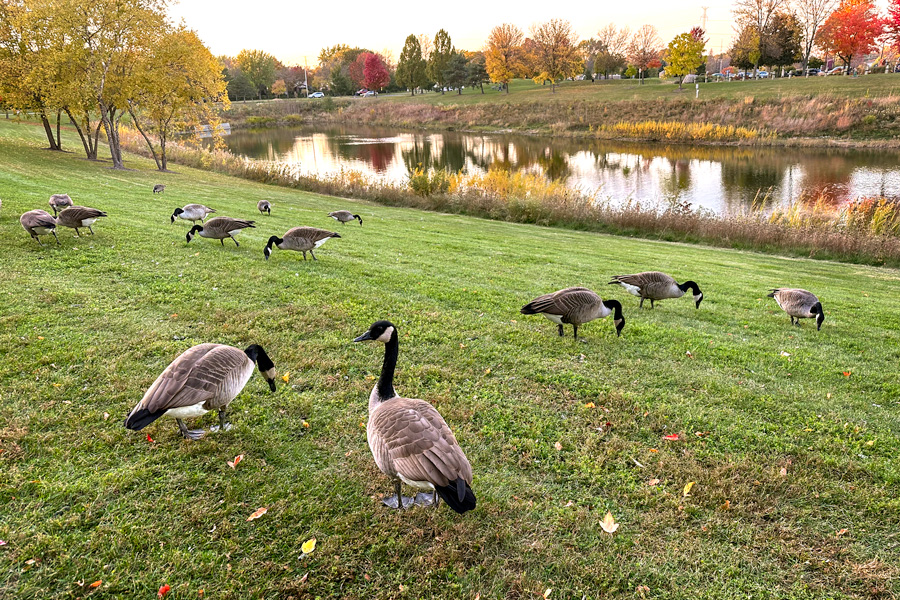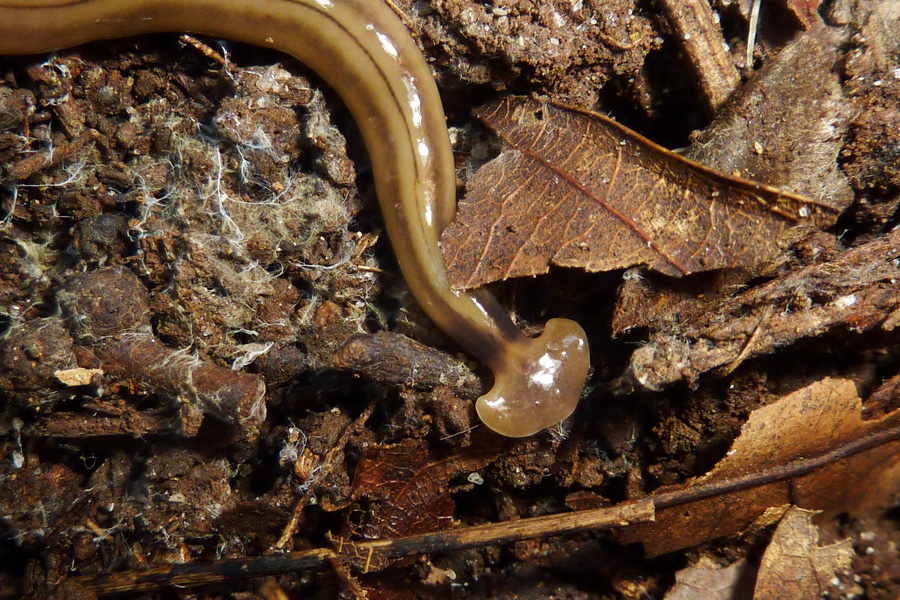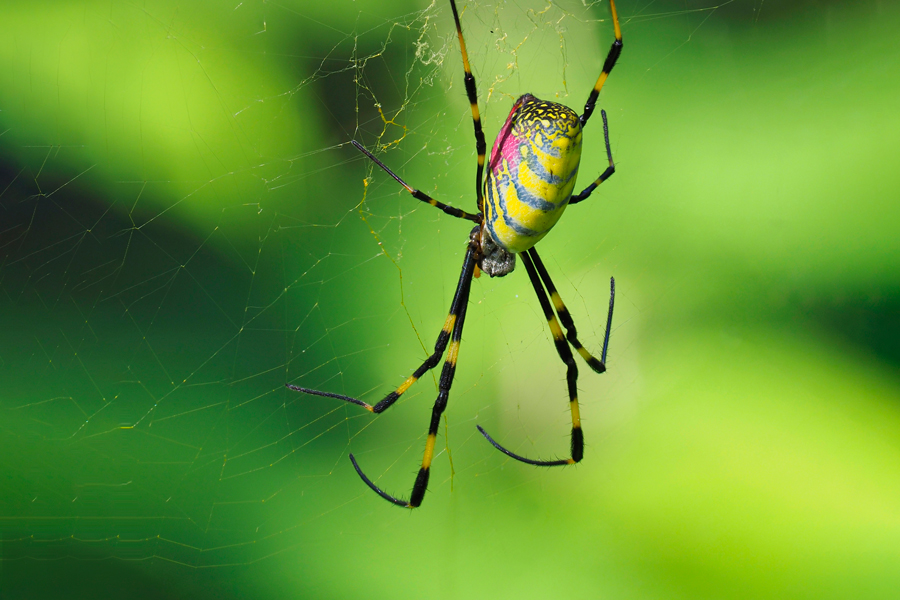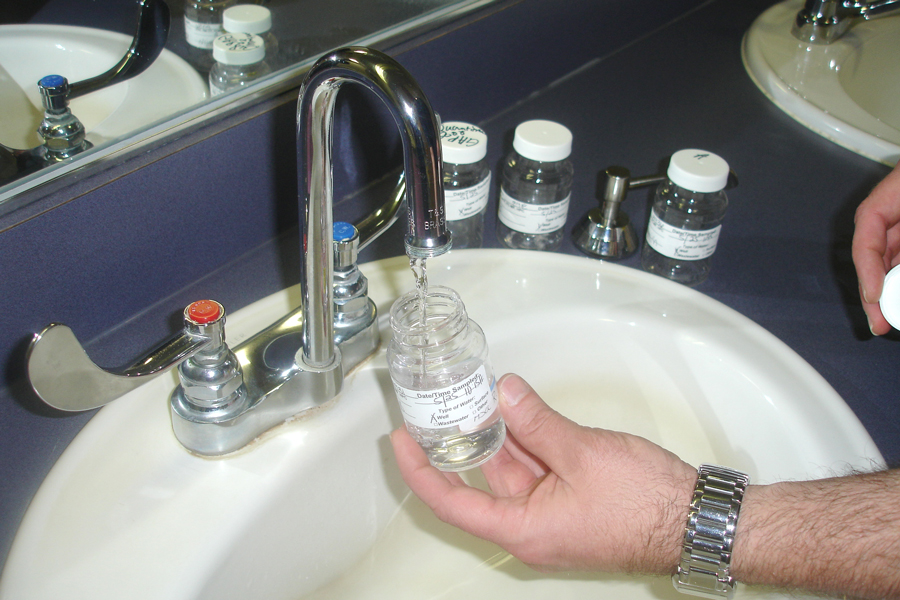Home
-

Arsenic in your drinking water may damage your health. Because arsenic in household well water is usually dissolved from natural rock in the aquifer, water treatment is the only way to eliminate it. This publication describes methods for removing arsenic from household drinking water.
Uttam K. Saha
|
-

When wildlife populate a place where they are unwanted or cause damage to valuable plants or structures, they become a nuisance. This publication discusses some basic principles for dealing humanely with nuisance wildlife.
Michael T. Mengak
|
-

This publication is a guide to 110 common pest insects found in and around the home, including prevention and treatment options.
Brian T. Forschler, Dan Suiter, Lisa Ames, Richard Hoebeke, and E. Richard Hoebeke
|
-

The publication gives basic biology and description, with images, of the spider’s immature and adult forms, along with recommendations for managing them around the home. The Joro spider is a native of Japan and East Asia that was first documented in the United States in 2014 in northeast Georgia. The initial population appeared to be centered around Braselton and Hoschton, GA, along I-85. By 2022, the spiders had spread about 75 miles in all directions from that initial detection. The native range of these spiders in Asia extends from southeast Asia northward through a swath of eastern China, the Korean peninsula, and all but the northernmost island of Japan, and westward to India and the foothills of the Himalayas. Given that distribution, there seems to be no obstacle to the Joro eventually expanding its range to include all of Georgia, the Southeast, and most of the rest of the eastern U.S. as well.
William G. Hudson, Shimat V. Joseph, and Jason Schmidt
|
-

An abundant supply of clean, safe drinking water is essential for human and animal health. Water from municipal or public water systems is treated and monitored to ensure that it is safe for human consumption. Many Georgia residents, especially in rural areas, rely on private water systems for human and livestock consumption. Most private water systems are supplied by wells. Water from wells in Georgia is generally safe for consumption without treatment. Some waters, however, may contain disease-causing organisms that make them unsafe to drink. Well waters may also contain large amounts of minerals, making them too “hard” for uses such as laundering, bathing or cooking. Some contaminants may cause human health hazards and others can stain clothing and fixtures, cause objectionable tastes and odors, or corrode pipes and other system components.
Uttam K. Saha and L. Mark Risse
|
-

Mechanical filtration removes suspended solids and dirt to greatly improve the clarity of water. Various kinds of mechanical filtration methods and devices are available for home water treatments. Primarily, the size of the suspended solids will determine the appropriate type of mechanical filtration device suitable for your unique situation. Consumers interested in filtration devices should discuss the advantages and disadvantages of various available options with a water treatment professional. This publication discusses the various aspects of mechanical filtration.
Gary L. Hawkins, Pamela R. Turner, Uttam K. Saha, and Jason Lessl
|
-

Presence of bacteria in your drinking water supply does not necessarily pose a health hazard. Certain types of bacteria in household water are more of a nuisance issue. Your water may test negative for coliform and E. coli, but it may still contain other bacteria, typically nuisance bacteria. The two most common types of nuisance bacteria are iron (manganese) and sulfur bacteria. Iron (manganese) bacteria are generally more common than sulfur bacteria because large amounts of iron can be present in ground water. Iron and sulfur bacteria can live together in a household water supply system, so it can be very difficult to determine whether the problem is from one or the other, or both.
Water tests looking for the presence of iron bacteria are seldom recommended and are generally not required. Instead, the confirmation of the presence of iron bacteria is usually based on visual inspection. The unmistakable “rotten egg” odor of hydrogen sulfide gas is the most obvious sign of a sulfur bacteria problem.
Once iron bacteria are well established in a household water supply system, their complete elimination is extremely difficult or even impossible. Preventive measures are more critical and effective than corrective actions. This publication includes some simple preventive measures as well as control and treatment options.
John D. Parks, Uttam K. Saha, and Jason Lessl
|
-

Pathogens in household waters pose a serious threat to human health. The CDC has recorded many drinking water microbial-associated disease outbreaks in the U.S., causing illness, hospitalization, and even death. To protect human health, disinfection is considered important in most water treatment systems. This publication provides necessary information on the various disinfection options for household water as well as important points to consider before buying disinfection equipment.
Keith Mickler, Gary L. Hawkins, Pamela R. Turner, and Uttam K. Saha
|
-

Tawny crazy ants have proven to be a major nuisance to Georgia residents. This publication helps readers identify these ants and provides guidance for pest management professionals to manage and eliminate them.
Dan Suiter
|